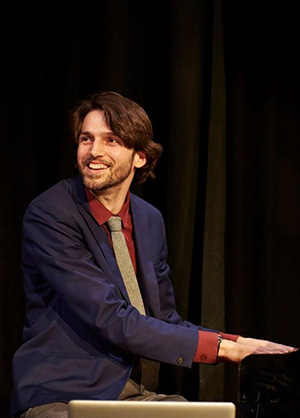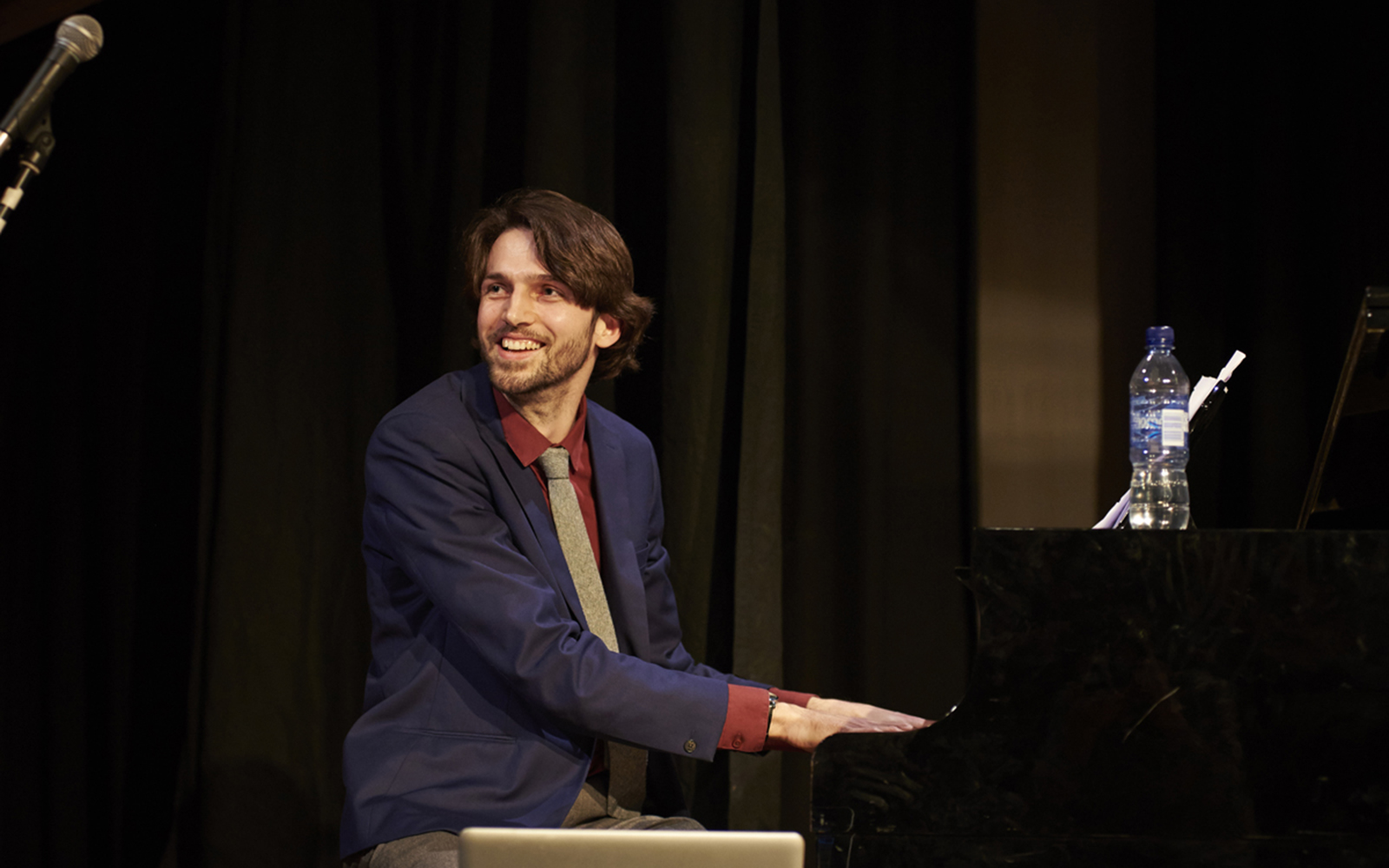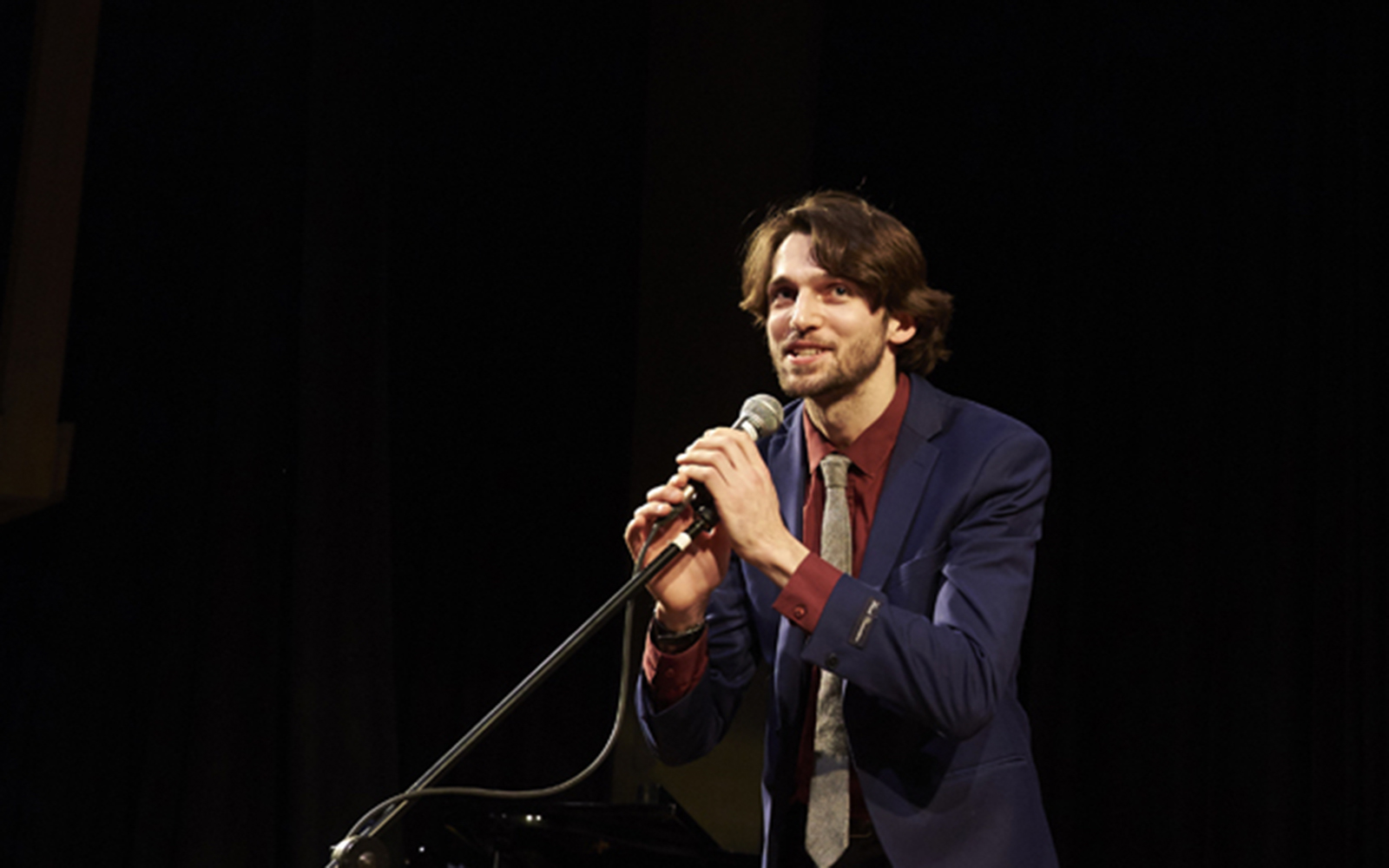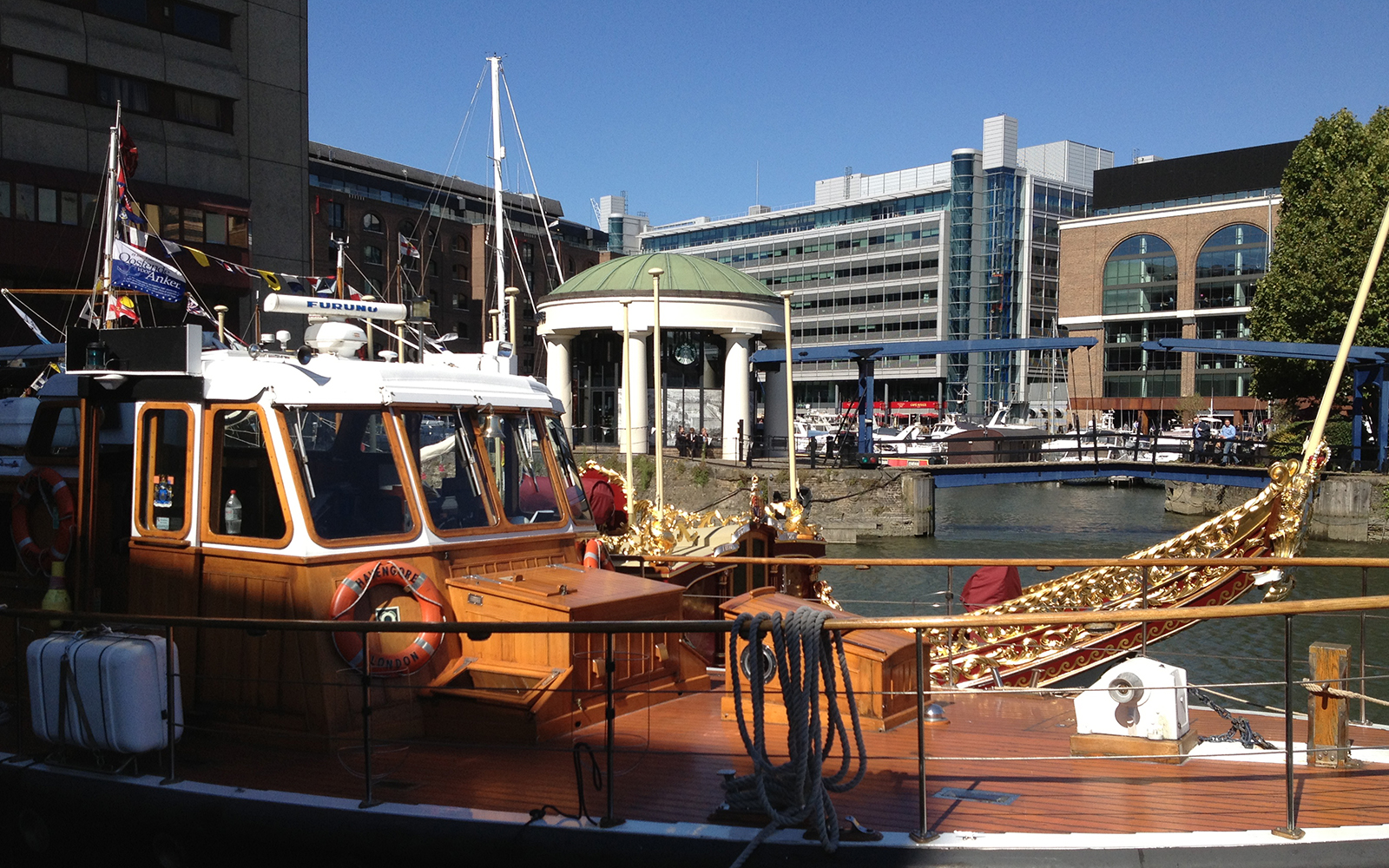A Day with Thomas Hewitt Jones

Thomas Hewitt Jones, composer
It is a privilege to interview Thomas Hewitt Jones, not only because he is an exceptionally talented composer but also because he is such a charismatic person, who always seems to be busy. So I’d like to thank him for taking time out of his schedule to share his passion about music and his insight into the musical side of London. I met him by chance a couple years ago and he charmed me like a prelude!
Thomas is a talented composer who comes from a very musical family. At 30, he has plenty of accomplishments already under his belt and, I am sure, many more to come. His main residence is in South London but he travels widely and has an excellent insight into the artistic side of London life.
Julia: First things first: how did you decide to become a composer?
Thomas HJ: I didn't really decide, to be honest - writing music is just something I've always done, ever since I was a child. I have always been fascinated by the process of expressing through music things that are beyond words. Composing new work is totally engrossing, and this kind of direct expression quickly becomes a part of you. The most exciting part of being a composer is having one's music performed, broadcast and recorded by top professional musicians. The hardest part is shutting the door and writing for days on end without seeing anyone. But that’s the deal and I’m happy to do it.
Julia: What has been your proudest accomplishment so far?
Thomas HJ: Difficult to say. Conducting my own music live on BBC Radio 3; having music published and performed internationally; scoring the London 2012 Olympic Mascot animated films; recording regularly with orchestras; having my music played frequently on Classic FM during Christmas - all memorable for different reasons. My grandfather was a composer who wrote contemporary music, which never really caught on as he deserved. So I have deliberately written music in the commercial field as well as concert music. It is a fantastic way of honing one's craft. I’ve learned to orchestrate for different budgets under pressure of deadlines. People love to pigeon-hole, but I have always written my own very personal, modernist music privately in the background, and I plan to unleash it gradually over the next 40 years in order to shock people!
Paste a VALID AdSense code in Ads Elite Plugin options before activating it.
Julia: What projects are you working on now?
Thomas HJ: As a freelance composer, you have to be flexible about switching between commissions and finding the time to pursue more adventurous, musically challenging work that pushes your creative boundaries. I’m currently scoring an exuberant orchestral work, which is being recorded in Henry Wood Hall in November.
I'm making some amendments to the band parts for the second season of my musical adaptation of 'Rumpelstiltskin', with book & lyrics by Matt Harvey, which opens in Belfast in December.
I’m also just completing the first draft of a very ambitious project, a large-scale musical with an Australian theme called “The Governor”, which we hope will open in Sydney before transferring to Broadway and the West End.
Next year I am writing my biggest commission yet, a big choral symphony with words by regular collaborator Paul Williamson, and in order to write it I have vowed to come off social media for the whole of 2016. My friends don’t believe I can do that – and they may well be right! We’ll see.
Julia: Neither can I but what fantastic news! Where do you find your inspiration?
Thomas HJ: From the oddest places. Ideas can strike at the most inconvenient times and I usually have a notebook with me to be able to jot rough notes. Composing comes pretty easily to me but finding the 'way in' to a piece of music can take a while. Then comes the hard slog. It’s always a balance between inspiration and solid technique. For heavyweight orchestral music, looking back at the symphonic canon and finding new genre-bending forms and structures is definitely a good start.
Julia: What are your favourite places in London? If you had to, say, relocate forever and spend one last day in London, how would you spend it?
Thomas HJ: I love going to Handel House in Mayfair, because it shows you all the facets of a composer’s life. He was a creative businessman – you can see his account books in the Bank of England Museum – it gives a fresh insight into all that amazing work.
A macabre venue is the Old Operating Theatre near London Bridge, where they used to perform amputations without anaesthetics – maybe not a place for a first date!
The area between Greenwich and City Airport, which is changing so fast, St Catherine’s Docks – and my absolute favourite: Dulwich Park, I spend a lot of time there.
For a last day in London, I'd probably try and do something I've never done before, and then return to my regular haunts. Messing about in a boat on the River Thames would be high on the list. London would be a much poorer place without the Thames running through it, bringing life and variety. You’ve got to love the river! (Which is actually the title of one of the songs in the new musical.)
Julia: London is constantly changing, what do you like about the latest London scene and what do you miss?
Thomas HJ: I love the diversity that London offers. All the different types of live music – London caters to all tastes. The variety of inspirational people that live and work in the capital. The fact that one can be a creative person in many different arenas and not be pigeon-holed. At the moment, I am very wedded to living here because so many of my commissions are London-based. But I haven't ruled out a quiet life in the country with a studio in the back garden – ask me again in five years' time...
Last but not least we present for your pleasure an extract from 'Panathenaia'. Panathenaia is a new cantata with score by Thomas Hewitt Jones and words by Paul Williamson which was commissioned in 2014 by Hugo Ticciati and Festival O/MODƏRNT. Panathenaia received its UK premiere on 4 June 2015 in front of the Parthenon Frieze at the British Museum. This 40 minute cantata tells the story of the Parthenon, a former temple on the Athenian Acropolis in Greece which was dedicated to the goddess Athena, whom people of Athens considered their patron.





